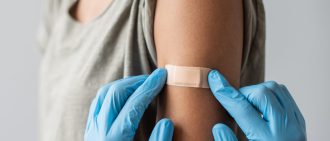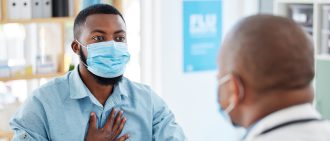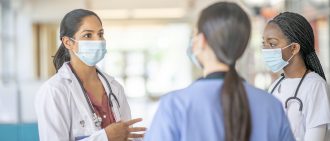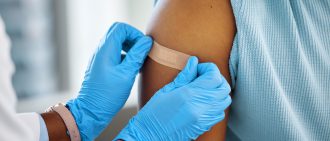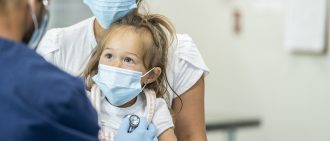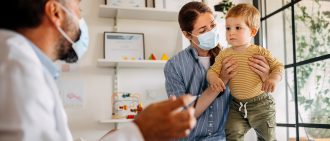-
Article - 5 Minute Read
What to Know About the New COVID-19 Vaccine in Fall 2023
The FDA and CDC are recommending Americans 6 months and older get an updated COVID-19 vaccine, which was reformulated to protect against more current variants. Read More
Categorized as: COVID-19, Health Topics A-Z
-
Article - 8 Minute Read
COVID-19 and the 2023-24 Flu Season: What to Know
With COVID-19 still around and respiratory virus season approaching, vaccination and other preventive efforts are important. Learn more. Read More
Categorized as: COVID-19, Living and Wellness
-
Article - 2 Minute Read
What to Know About UPMC’s Updated Mask Policy in February 2024
As of Feb. 29, 2024, masking is encouraged but optional at UPMC medical facilities. Learn more about UPMC's masking policy. Read More
Categorized as: COVID-19
-
Article - 4 Minute Read
COVID-19 and Stroke: What to Know
Some people are at a higher risk of stroke after COVID-19. Learn about causes, risk factors, and ways you can prevent stroke after COVID-19. Read More
Categorized as: COVID-19
-
Article - 5 Minute Read
Why It’s Safe to Get Donated Blood From Someone Vaccinated for COVID-19
Despite online misinformation, it is safe to receive blood donated by people who got the COVID-19 vaccine and people who have recovered from a COVID-19 illness. Read More
Categorized as: COVID-19
-
Article - 5 Minute Read
What Should I Do If I Think I Have Long COVID?
If you have new or continuing symptoms three months or more after an original COVID-19 illness, you may have "long COVID." Find out how you should handle it. Read More
Categorized as: COVID-19
-
Article - 3 Minute Read
What to Know About the Novavax COVID-19 Vaccine
The FDA has authorized a more traditional protein-based COVID-19 vaccine developed by Novavax. Americans 18 and older are eligible for it. Read More
Categorized as: COVID-19, COVID-19 Vaccination
-
Article - 3 Minute Read
The Impact of COVID-19 on Your Child’s Heart Health
How can COVID-19 impact your child's heart health? Tyler H. Harris, MD, a pediatric cardiologist at the Heart Institute, is here to explain. Read More
Categorized as: COVID-19, Living and Wellness, Pediatrics
-
Article - 4 Minute Read
The COVID-19 Vaccine in Young Kids: What to Know
Children as young as 6 months old can now receive the COVID-19 vaccine. Learn more about the vaccine's safety and effectiveness from UPMC. Read More
Categorized as: COVID-19, COVID-19 Vaccination
